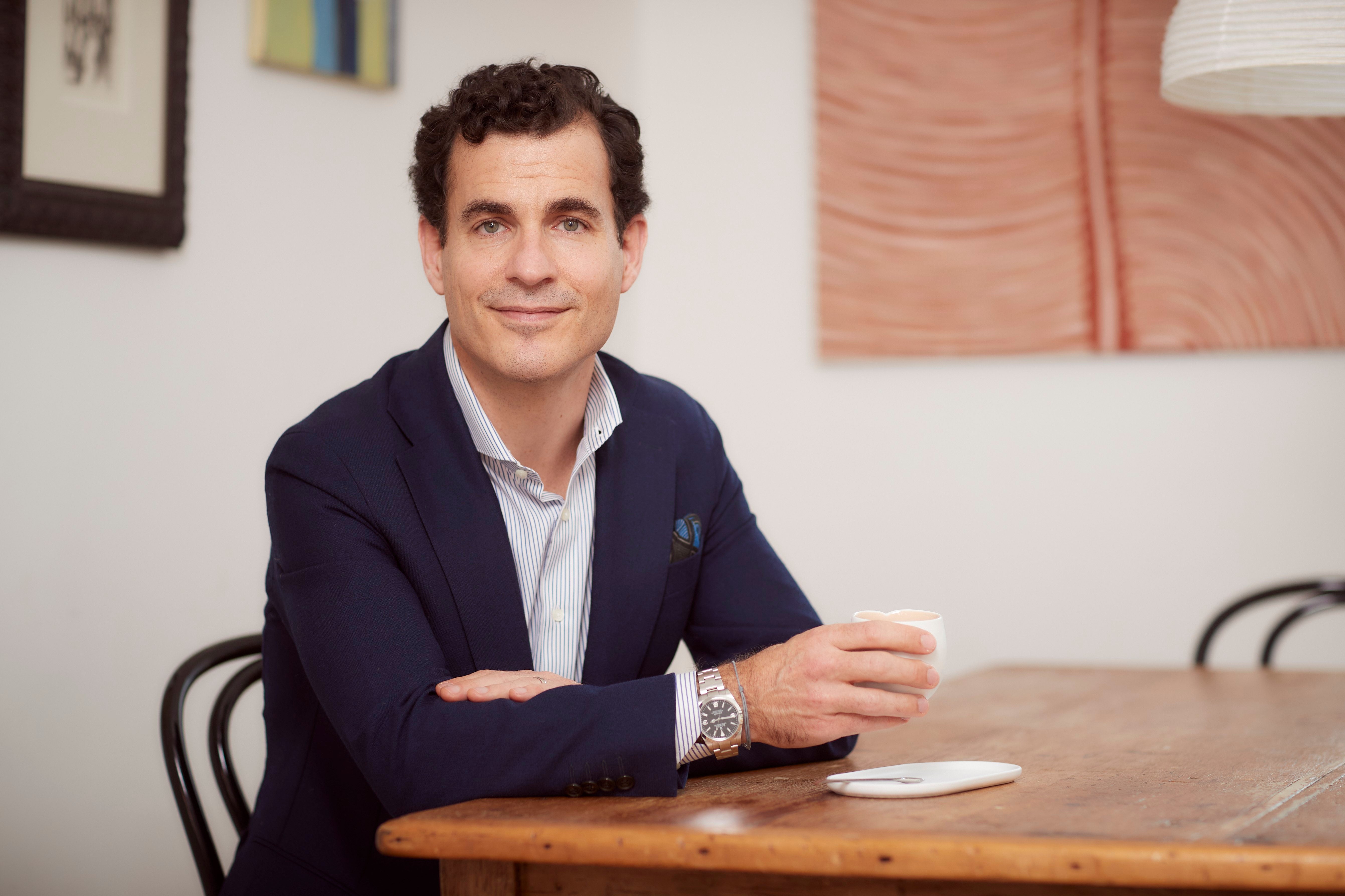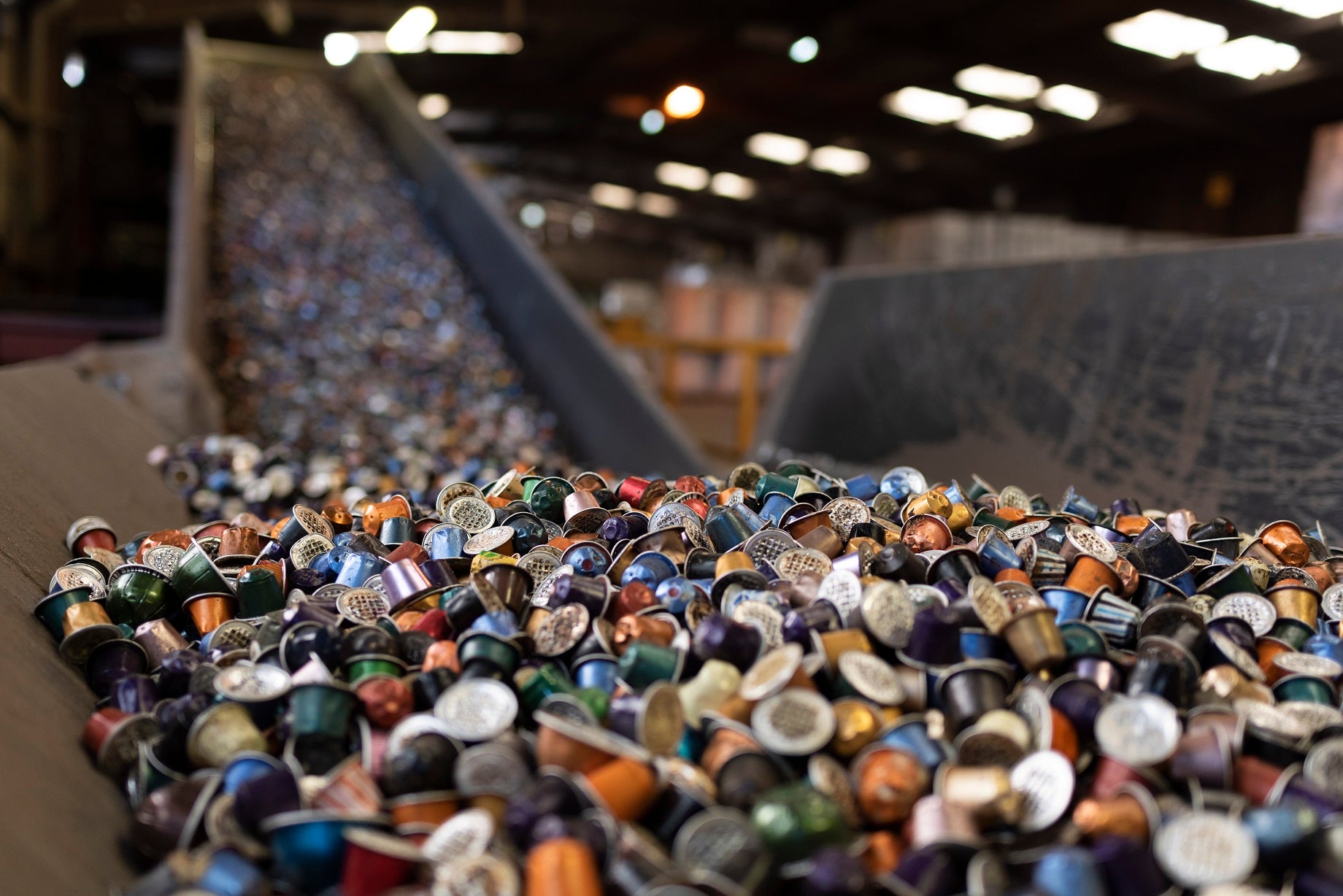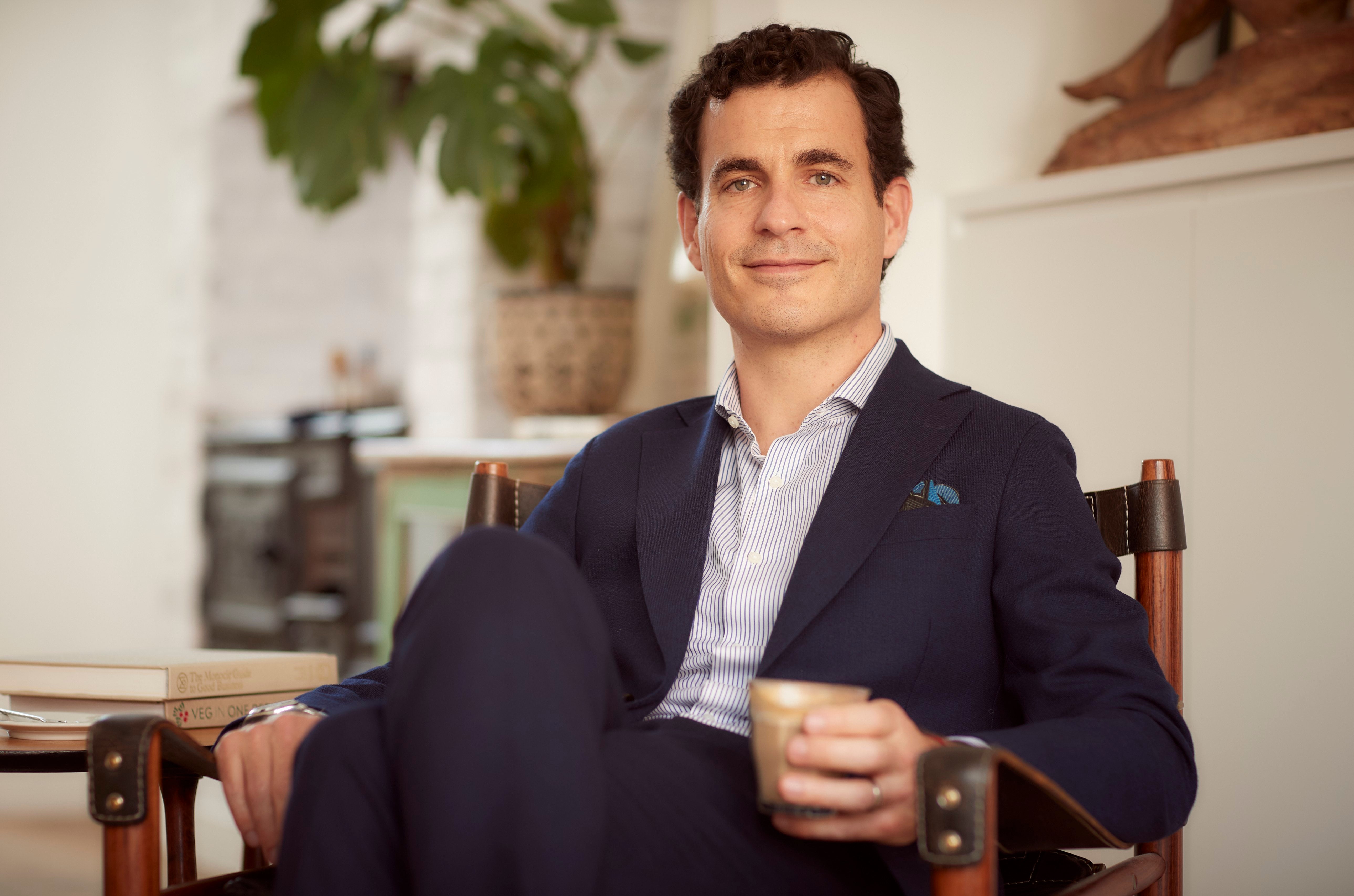How the Nespresso UK and Ireland director is making coffee more sustainable
The brand revolutionised morning routines with aluminium capsules, but Guillaume Chesneau tells Zlata Rodionova they’re putting sustainability on the menu now


For many of us, the Nespresso brand is part of our daily routines and its coffee pods need no introduction. Yet, while the company has enabled its customers to get high-quality coffee by simply pressing a button, Nespresso’s “bean to cup” journey is less straightforward.
As environmental concerns increasingly become top of mind for consumers, Guillaume Chesneau, Nespresso UK and Ireland managing director, argues that putting sustainability at the heart of business is now more important than ever before and Nespresso has a clear responsibility to drive the agenda.
“There’s not one business that can remain afloat and thrive without having a sustainability angle to it. Nespresso is, by far, the business that has taught me that because of their clear agenda,” Chesneau told The Independent.
He added: “It’s part of the DNA of the brand. We’re doing it because it’s right but we also have a clear interest in doing it. Coffee is our core business and the impact of climate change on coffee growing regions is very significant. Experts are saying up to 60 per cent of some coffee varieties will no longer exists if we don’t reverse the trend.”
The 47-year-old, who started his career with stints at French railway companies, SNCF and Schneider Electrics, joined Nespresso in 2008 with leadership roles in Australia, New Zealand, Sweden and now the UK.
“What really attracted me to the brand was the interview with my manager at the time. I'm value-led and I had a very strong sense of being able to contribute at the right level and being supported to do my job well. I guess my gut-feeling was right as thirteen years later I'm still with the business and I have had the opportunity to evolve professionally around the globe.”
We have a clear responsibility to drive the agenda
Chesneau candidly explains that sustainability has been an expanding element of his career while his own interest increased over time. He admits that his business experience makes him a stronger sustainability ambassador today compared to 30 years ago.
“Growing up in France, back then, we had no recycling like the systems in place today. We would have to walk for kilometres with a bag full of glass bottles, needless to say very few people were doing that.
“But my experience has taught me it’s the only way forward. My three children are also teaching me a lot about sustainability today. The way they are educated at school is vastly different from my education. They have clear projects that are driving the agenda and their mindset is set, they don't need me to remind them about recycling.”
Nespresso has previously attracted criticism from environmental activists and advocates due to its role in the global shift towards single use coffee pods.
Although Chesneau admits that there have been challenges along the way, he points to the company's AAA sustainable quality programme, which launched in in 2003 in collaboration with The Rainforest Alliance, as evidence of the company’s eco-credentials from the very start. To further boost its sustainability credentials, Nespresso has also vowed to make every cup of its coffee carbon neutral by 2022.
“We work directly with over 110,000 farmers in 14 countries who receive hands-on support, so putting programmes across the value chain to guarantee a sustainable supply of the highest quality coffees over the years has been an enormous challenge,“ Chesneau says.

“That said, 95 per cent of our coffee sourced from AAA farms. I consider that a great success but it’s been a 20 year journey.”
Recycling is another part of Nespresso’s sustainability strategy and a top priority for Chesneau as he was first tasked to put the recycling scheme in place in Australia and New Zealand back in 2008.
Nespresso’s pods are, in theory, 100 per cent recyclable. However, as they contain plastic as well as aluminium, they can’t just be dropped in a regular recycling bin. The challenge for the brand is to ensure that everyone who is buying their capsules is also recycling them.
Progress has been slow but there are signs the trend is changing. In the UK, where the current recycling scheme has been implemented for a decade, the recycling rate has jumped from 1 per cent in 2010 to 47 per cent over the last 12 months.
“We have a clear responsibility to drive the agenda, which is something we are proud to do and we are proud of the results we have had so far but we also know that a lot more can be done,” Chesneau says.
In April, Nespresso’s parent company Nestlé joined forces with rival Jacobs Douwe Egberts (JDE) UK, which makes Tassimo, to launch Podback – the sector’s first national recycling scheme in its latest bid to boost rates across the sector.
Seeing the difference we make in the field by supporting our agronomists in places like Zimbabwe, where we are providing technical assistance for free, was an extremely proud moment for me
The scheme allows consumers to recycle their Nespresso, Dolce Gusto, Starbucks by Nespresso, Starbucks by Nescafé Dolce, Tassimo and L’Or coffee in simpler and more convenient ways. Local councils are being invited to provide kerbside collection for pods alongside other household recycling, while consumers can also leave their capsules at their nearly 7,000 drop-off points open seven days a week.
Early reception from customers and local communities has been positive, although it is too early to evaluate Podback's full impact. Chesneau, meanwhile, remains optimistic about the future as consumers and partners are increasingly aware of the challenges brought by the climate crisis and the importance of recycling. He argues that businesses' collective mission to play their part in solving the crisis is now more important than individual brands.
“I think we see a clear acceleration. We have a lot less to do to convince partners and customers that they need to make a small effort. Our job is to make recycling easy and convenient and show its benefits but we can't recycle the capsules ourselves. Fortunately, the discussions we are having around Podback are much easier today than they were even three years ago.
“We know that the best way to recycle your capsule today is via kerbside. It’s simple and easy. It means dumping your capsule with your waste collection every week. For us, it means working with local authorities and competitors. All this effort to me is what makes a difference. We can’t do it alone.”
Growing recycling rates aside, some of Chesneau's career proudest moment include seeing the impact of Nespresso's Reviving Origins programme, where the company commits to working in countries affected by war or climate change to help restore the coffee industry, on the ground.

“Seeing the difference we make in the field by supporting our agronomists in places like Zimbabwe, where we are providing technical assistance for free, was an extremely proud moment for me. All of this is really supporting the industry and now coffee exports from Zimbabwe are happening again.“
Meanwhile, the Covid-19 pandemic felt like the most challenging moment in his professional life to date in what he calls a “defining crisis” for the business.
“No one knew how long it would last and working from home was very complicated in the early days. We held crisis committee after crisis committee – it was difficult from the physical and mental standpoint. But fundamentally with the support of everyone in the business, I strongly believe that we are coming out of the Covid crisis stronger than how we entered it.”
While Nespresso’s business division suffered dramatically due to the closure of hospitality and offices, the pandemic led to a surge in at-home coffee consumption.
In fact, it helped parent company Nestlé achieve its fastest ever quarterly sale driven, in part, by a 17.1 per cent jump in sales of Nespresso products in the first three months of 2021.
Chesneau hopes to built on that trend and bring more innovation to its customers with new coffee blends and special editions adapted to the changing demands and lifestyles of consumers.
“We have a true direct-to-consumer model, which means we have a duty to perform well with our customers. Making this customer journey frictionless – whether it’s in store or online, via the application or subscription – is a really good challenge and one that we’re happy to take on.”
Join our commenting forum
Join thought-provoking conversations, follow other Independent readers and see their replies
Comments
Bookmark popover
Removed from bookmarks